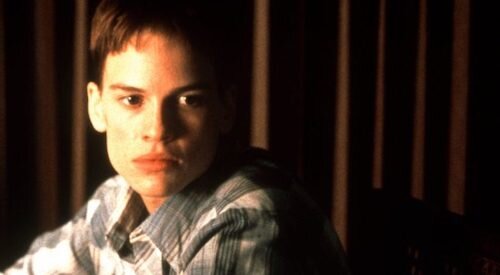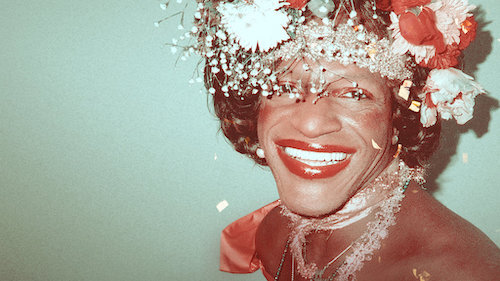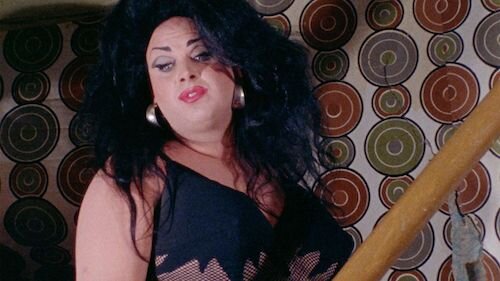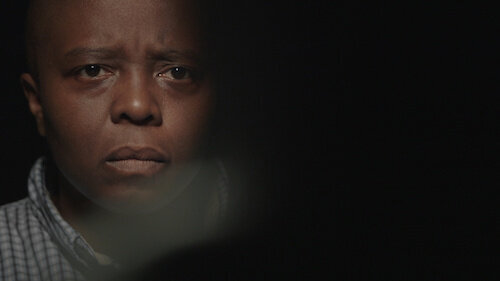Celebrating LGBTQ+ Filmmakers: Twenty Five Crucial Works
Kimberly Pierce.
We’re nearing the end of Pride Month, when the LGBTQ+ community is celebrated. However, we believe that this community should be supported, appreciated and respected year round. So, here are some resources for a few LGBTQ+ related charities you can donate to at any time, as well as ways to learn more about the community.
•Canada Helps has a nationwide list of charities.
•Yohomo has created a substantial list for Toronto related charities.
•Penguin Random House has put together a collection of LGBTQ+ literature to help educate anyone about the community.
•Book Riot also has a list of LGBTQ+ literature that is worth checking out as well.
Credit goes to the above sources, who did an excellent job of researching many fantastic ways to help and be informed.
This list of noteworthy works by filmmakers of the LGBTQ+ community about their experiences and voices is similar to our list that celebrated black filmmakers, which can be found here. Because we found some crossover films that are important for this list as well, we moved four of those over here, bumping the original number from twenty one to twenty five. Nonetheless, even this amount can’t cover every single monumental film made by LGBTQ+ artists, but we hope it’s a start that can help you discover amazing filmmaking.
All About My Mother: Pedro Almodóvar
In this feminist drama by acclaimed director Pedro Almodóvar, there is also the prominent featuring of transgender characters. With the topic of maternity being discussed, Almodóvar uses All About My Mother to celebrate transgender women that are mothers or allies as well. With the magnificent speech by the character Agrado at a poignant moment in the film that alerts the world to her new found life, All About My Mother is indeed about all mothers.
Bound: The Wachowskis
Before the Wachowski sisters broke ground by becoming two of the first filmmakers to transition, they created a number of statements in their work (including the shifting of one’s own identity in The Matrix). Their debut was Bound: a noir film featuring a lesbian couple hatching the scheme of their lives to leave their previous situations. A bold plot done very tastefully, Bound is a thriller that doesn’t exploit its subjects, even to create tension.
Boys Don’t Cry: Kimberly Pierce
Kimberly Pierce’s Academy Award winning biopic on Brandan Teena remains vital to this day. Boys Don’t Cry’s depiction of the hate crime committed against Teena is visceral, but the moments that celebrate Teena’s life beforehand treat his joy with tenderness. A difficult watch, but an awards season juggernaut that has long surpassed its release year thanks to its authenticity and care.
Call Me By Your Name: Luca Guadagnino
Teaming up with James Ivory to adapt the novel by André Aciman’s novel, Luca Guadagnino’s Call Me By Your Name is a romance for the ages. A developing love between a professor’s son and a visiting student is told so lovingly. Every bit of the Italian backdrop feels like you can sense it yourself. The happiness and discovery throughout Call Me By Your Name only makes the breaking of a young heart ache even more.
Carol: Todd Haynes
After his groundbreaking art films of the ‘80s New Queer Movement and his statements from the ‘90s and ‘00s, Todd Haynes made the devastating Carol: a forbidden romance in the ‘50s. Unafraid to reveal the difficulties of having a same sex relationship in a more bigoted time, Carol is occasionally magical, yet it is hard hitting for the vast majority of its runtime. A gravely under appreciated film during the awards season, Carol is magnificent enough to transcend time.
Chutney Popcorn: Nisha Ganatra
Chutney Popcorn is Nisha Ganatra’s passion project as she wrote, produced, directed, and stars in this debut tale of sexual discovery. Representing exploration and the topic of cultural identities, Chutney Popcorn features a lesbian couple from Indian and American families. Ganatra’s character Reena is asked to be the surrogate mother for her sister and her husband’s baby, which becomes another discussion that adds to the tension that this character is already facing. Chutney Popcorn is told gracefully, and it was an early sign of Ganatra’s great filmmaking capabilities.
The Color of Pomegranates: Sergei Parajanov
For many years, Sergei Parajanov’s films were hidden by Soviet authorities, as he was framed and imprisoned for engaging in homosexual relationships. His films were also challenged for a number of reasons. Yet, Parajanov remained unafraid to tell his stories. A courageous move was having actress Sofiko Chiaureli perform both female and male characters, instilling a sense of androgyny to the life of Armenian poet Sayat-Nova in The Colour of Pomegranates. Despite the authorities’ best efforts, his works — including Pomegranates — remain inspirational and adored to this day.
The Death and Life of Marsha P. Johnson: David France
Marsha P. Johnson is a gay rights activist legend, who took part in the Stonewall riots that helped pave the way for LGBTQ+ communities. David France’s Netflix documentary about her is a must-see capturing of history, as it opens up the case to investigate her death (and investigate if she was actually murdered). Her fights for human rights, and her struggles in a world in dire need of change, are all captured here by France’s no-nonsense filmmaking.
Female Trouble: John Waters
The biggest name of the underground transgressive film movement, John Waters has many films that can be selected here, particularly because of his use of the “Dreamlanders”: a series of performers that worked with him on multiple occasions (including drag star Divine). Female Trouble is the midpoint between his more shocking works, and his later conventional fare. It’s a sharp satire that’s unafraid to get messy in typical, glorious John Waters fashion.
Hedwig and the Angry Inch: John Cameron Mitchell
John Cameron Mitchell’s musical sensation Hedwig and the Angry Inch is an adaptation of a stage hit for all time. With a massive cult audience that only continues to grow, Hedwig is the sensational tale of the titular rockstar (played by Mitchell) who fights for her rights (to reclaim her music and her life). As time goes by, the strength of Hedwig and the film’s impact on modern musicals only gets stronger. No current musical resonates quite like it.
The Hours: Stephen Daldry
Stephen Daldry’s The Hours has a few LGBTQ+ perspectives that run through it, including bisexuality (through Clarissa’s modern story). At its heart is the turmoil of author Virginia Woolf: an early storyteller that provided a literary voice to lesbian and transgender identities. With Woolf’s visible pressure in the film, The Hours parallels three lives of different eras. It only forces us to wonder: what if Woolf was accepted for who she was, like Clarissa was in 2001? Daldry’s triptych tale grants us this discussion, but we’ll sadly never know.
Je Tu Il Elle: Chantal Akerman
Chantal Akerman was fantastic for being able to represent the restraint that women feel in misogynistic societies. Je Tu Il Elle is a breakthrough of this barricade, fulfilled by a constrained subject (played by Akerman herself) who eventually creates her own liberation. The plot is simple, but it’s Akerman’s capturing of loneliness and silence that makes works like Je Tu Il Elle revelatory. By the film’s expressive last act, you’ll experience Akerman’s take on cinematic sexual freedom, and it’s portrayed with hyperrealism.
The Kids Are All Right: Lisa Cholodenko
Lisa Cholodenko opened the 2010’s with the dramedy sensation The Kids Are All Right: the bonding between a sperm donor and a family he contributed to. Cholodenko has said that parts of this film are based on realities she has faced, as she also conceived a child via a sperm donor while in a same sex relationship. Feeling that her tale — and her additions to the story that resulted in this film — was pertinent for many families to see on the big screen in 2010, she created a family tale of now that will shine for all time.
I Killed My Mother: Xavier Dolan
We know Xavier Dolan as a prolific prodigy now, but he had to start somewhere. He wrote, produced, directed, and starred in the semi autobiographical I Killed My Mother: a teen who is butting heads with his mom and with society. Dolan includes a subplot about his homosexuality being hidden from his mother in fear of being further alienated from her. It’s a topic Dolan discusses often, but his vulnerable debut is where he holds this conversation the best.
My Own Private Idaho: Gus Van Sant
A leading name in the New Queer Movement, Gus Van Sant has dominated with films of all topics. He circled back to the underground movement with My Own Private Idaho, which pit two rising stars together (River Phoenix and Keanu Reeves) in this unique take on Shakespeare’s Henry IV. The shining moment is at the heart of the film, amidst all of the chaos and anarchy, when a rare time of solitude becomes the opportune moment for someone to come out to their friend in hopes of a mutual response. It’s a raw, poetic instance that helped an entire cinematic movement.
Oya: Something Happened On the Way to West Africa!: Seyi Adebanjo
Seyi Adebanjo is a rising transgender filmmaker from Nigeria, who has devoted themself to documenting injustices in a variety of different ways. One of their greatest achievements is a documentary short
called Oya: Something Happened On the Way to West Africa!: a comparisson between the reception of genderfluidity in Nigeria and in New York (where they now reside). Adebanjo is a much needed artist that is shedding light on perspectives that are neglected in cinema; we can’t wait to see where they go from here.
Panic Bodies: Mike Hoolboom
Canadian experimental filmmaker Mike Hoolboom has always been upfront with his struggle with AIDS in his works since he was first diagnosed. Panic Bodies — a compilation of previous short segments — is his description of this battle in his own way. Part of it is literal, with the description of how tastes change and your body feels foreign to you now. Much of it is metaphorical, with challenging images and presentations that convey feelings that labels and adjectives simply cannot depict.
Pariah: Dee Rees
Dee Rees’ debut film Pariah is the personal take on growing up a lesbian in America, particularly within a setting that may not be accepting of someone once they have come out. The film is a catharsis for Rees, who lived much of what goes on in Pariah even on a symbolic level, including family members trying to turn a child heterosexual. The film is a painful revelation, but a phenomenal start for Rees.
Paris is Burning: Jennie Livingston
Now a highly revered documentary, Jennie Livingston’s Paris is Burning is a taste of the New York drag ball scene during its heyday, made during a time where LGBTQ+ voices were still being heavily erased from all forms of art. A much needed lens when the world continued to turn a blind eye, Paris is Burning is the start of a new era, and its celebration of all walks of life is a positivity that we continue to need today.
Portrait of a Lady on Fire: Céline Sciamma
Céline Sciamma has created works about homosexuality and genderfluidity before, and has been a prominent name in France’s current wave of filmmakers. She pushed herself to a whole new echelon with Portrait of a Lady on Fire: a devastating take on a forbidden romance between an artist and her subject, who realize a little too late that their time together is valuable and limited.
A Single Man: Tom Ford
Renowned designer Tom Ford has turned to filmmaking here and there, and has proven himself to be a fantastic visual storyteller. His debut was the adaptation of A Single Man (by Christopher Isherwood) which involves a grieving professor who continues to be haunted by the sudden death of his boyfriend. Ford creatively uses shifting colour palettes and story structure to represent the longing for a loved one that shall never return, in a reality that has never been forgiving.
Strong Island: Yance Ford
Yance Ford became the first transgender filmmaker to ever be nominated for an Academy Award for Strong Island: a call for recognition of the hate crime that claimed the life of his brother decades prior. Ford’s candid conversations with us throughout this documentary are severely hard hitting, as we are welcomed into his perspective of what he has dealt with for nearly thirty years. Strong Island is the urgency for change within the American judicial system and police force, and the statement that bigotry should have no place anywhere anymore.
Tongues Untied: Marlon Riggs
Marlon Riggs broke ground with Tongues Untied: one of the first cinematic depictions of homosexuality within the African-American community, as a means of refusing to be silenced anymore. It juxtaposes actual footage with clips, creating the contrast to show society’s acceptance of bigotry over love. Artistic interpretations are included as well, amalgamating all voices on the matter to speak for all of those that were silenced, as a means of rendering tongues untied.
Tropical Malady: Apichatpong Weerasethakul
Apichatpong Weerasethakul often creates dreamlike imagery within his works, and Tropical Malady’s artistic take on his experiences as a gay man in Thailand is no different. Half of this arthouse staple is devoted to the bond shared between two lovers, with a second story metaphorically representing one’s isolation when stripped away from their soul mate. With a shaman antagonizing the new lead character (a symbolic soldier), you can suggest that this latter half of Tropical Malady is someone’s battle with society, family, or whomever has caused them grief over their identity, especially when your loved one is now gone.
The Watermelon Woman: Cheryl Dunye
While Cheryl Dunye’s The Watermelon Woman focuses heavily on the urgency of preserving black female artists, there is also a subplot where Cheryl (played by Dunye herself) falls in love. We witness her sexual exploration, particularly with a new girlfriend in the film. Her quest to find more history on the fictional titular Watermelon Woman is challenging, thus she creates her own modern history by celebrating authentic black lesbianism in film, in a time when it won’t be erased by archives.
Andreas Babiolakis has a Masters degree in Film and Photography Preservation and Collections Management from Ryerson University, as well as a Bachelors degree in Cinema Studies from York University. His favourite times of year are the Criterion Collection flash sales and the annual Toronto International Film Festival.




























